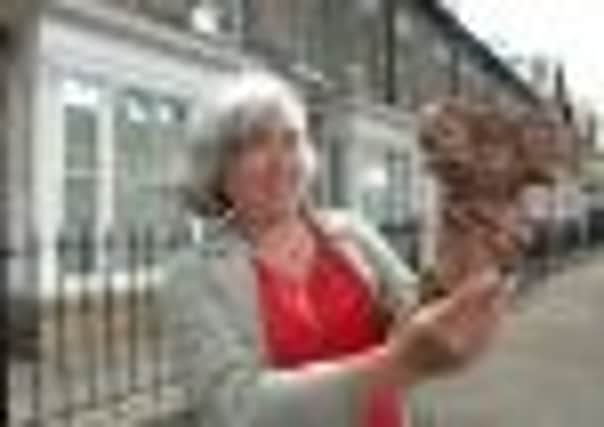Conservation area residents to face controls on improvements


Around £2m has been spent over the past five years on restoring original features on homes in the Boulevard and Coltman Street conservation areas, which in their heyday were considered some of the most desirable in the city.
The St Andrews Townscape Heritage Initiative, which comes to an end next March, is promoting the introduction of so-called Article Four directions, which would mean householders having to apply for planning permission if they want to alter front doors and porches as well as front windows and bays.
Advertisement
Hide AdAdvertisement
Hide AdConservation adviser Hilary Byers said: “Quite a lot of money has been invested in the Townscape Heritage Initiative in which we have helped people restore features, so we want to protect that investment by preventing other people removing original features and putting in unsuitable ones.”
A report says a high proportion of homes in the area have already lost original features or suffered from unsympathetic alterations and bringing in restrictions would help “stem the tide of inappropriate developments”.
It adds: “In a world of rapid change and without adequate planning controls in place, original and traditional features can quickly disappear from a conservation area, potentially affecting their special architectural and historical interest.”
Similar moves in the Avenues and Pearson Park conservation areas have divided opinion.
Advertisement
Hide AdAdvertisement
Hide AdWhen residents in Coltman Street and the Boulevard were asked about Article Four directions, there seemed little enthusiasm, less than eight per cent, or 50 out of the 650 quizzed, returning forms.
However nearly 80 per cent of those who did respond were in favour, although concerns about costs were raised, several suggesting energy efficiency and comfort was more important than looks.
Over the five years the Townscape Heritage Initiative (THI) will have restored around 45 homes – 15 per cent of all homes in the area. Some, like those at 249 to 259 Boulevard, were completely derelict, THI paying for the work to the front, and the owner paying for the internal works.
Ms Byers said it wouldn’t cost people to apply for planning permission but there may be costs involved with producing drawings.
Advertisement
Hide AdAdvertisement
Hide AdThe report to the Riverside Area Committee on Wednesday recommends carrying out another round of public consultation before going ahead.
The Boulevard and Coltman Street were laid out in middle of the 19th century, as part of the suburban expansion to the west of the city.
Coltman Street was laid out in 1840, in a select semi-rural area where trawler owners and other well-off members of the middle classes who wanted to quit the cramped unhealthy centre of Hull could live in large villas big enough for their families and servants.
The Boulevard was laid out in 1860 with wide grass verges and an avenue of trees.
Advertisement
Hide AdAdvertisement
Hide AdHouses were set back from the pavement in a variety of styles; largely Victorian and Edwardian. When built, the two streets were considered to be some of the best places to live in the city.
The report says during the 1980s many householders on Coltman Street took the opportunity to replace roofs and renew windows under the Urban Programme scheme.
Ironically the windows were mostly replaced with top hung windows which “detract from the character of the building” and wouldn’t have been given planning permission today. Many were done in poor quality timber, which has had to be replaced, often in plastic.
Action can curb deterioration
One in seven of the conservation areas in the country has deteriorated in the last three years – with unsympathetic replacement doors and windows identified as a “key issue”. English Heritage, which sent a questionnaire to all local authorities, found Article Four directions helped the situation, conservation areas where they were in place being twice as likely to improve as those without.